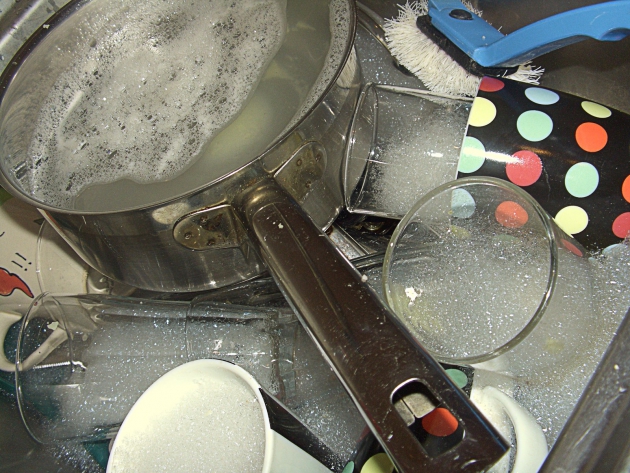With more than 30 years’ experience in the residential and commercial water treatment space, Mark Nelson is a Class 1 Drinking-Water Operator and a CBWA (Canadian Bottled Water Association) Certified Plant Operator. As founder and president of Nelson Water in Ottawa, Mark focuses on dealing with challenging water treatment system designs for problem water. He also heads the largest water bottling plant in the city of Ottawa with a delivery network throughout the Valley.
Conserving water is one of the best ways to help the environment and save money at the same time. If you’re looking to save water, one issue that may be of interest is the best way to wash dishes in your home. Is hand washing more practical and water efficient? Perhaps using a modern energy efficient dishwasher is a better solution? In this article, we will examine both dishwashing methods in more detail to determine which is best for water conservation.
Hand Washing Dishes
It has been estimated that an average home uses two gallons of water per minute when running a faucet to clean dishes. A more efficient person may be able to use less water than a dishwasher would use for an average load. This would typically be less than eight place settings and perhaps six serving pieces for the meal. Hand washing may not be the best method for those with larger households or in high traffic kitchens. Smaller families or couples could easily save water by using hand washing to clean their dishes.
Using a Dishwasher
In recent years we have seen consumers with environmental concerns choosing energy efficient appliances for their homes. An energy efficient dishwasher is estimated to use one sixth of the water compared to hand washing the same number of dishes. This kind of dishwasher will also require less energy to operate when compared to older less efficient models.
It’s important to ensure that the dishwasher is filled to capacity before starting the cycle. A half full dishwasher is a waste of water and energy. Older dishwashers required the dishes to be rinsed before they were placed in the machine. Many modern machines advise against this, and of course, this saves even more water.
For those using or thinking about buying a modern dishwasher here is some information from research on energy and water usage.
Regular Hand Washing: 2.5kW electricity and 27 gallons of water.
Efficient Hand Washing: 1kW electricity and 8 gallons of water.
Older Dishwasher: 2-3kW electricity and 15 gallons of water.
New Energy Star Dishwasher: 1kW electricity and 3-5 gallons of water.
As you can easily see, a modern energy efficient dishwasher uses far less electricity and water compared to the alternatives.
Washing Dishes in Filtered Water
There are also additional benefits to washing your dishes in filtered water. Many people report that they have better cleaning results for laundry and dishes using softened, filtered water. A water softener will remove the hardness that can cause a buildup of scale in water using appliances. This scale can affect the energy efficiency of your equipment by making it harder to reach the required temperature. The equipment works harder, and this can significantly lower the expected lifespan of the dishwasher.
A certified water treatment professional will be able to offer advice on the water conditions in your area. There are many types of water treatment systems available to address water hardness and water quality issues.

